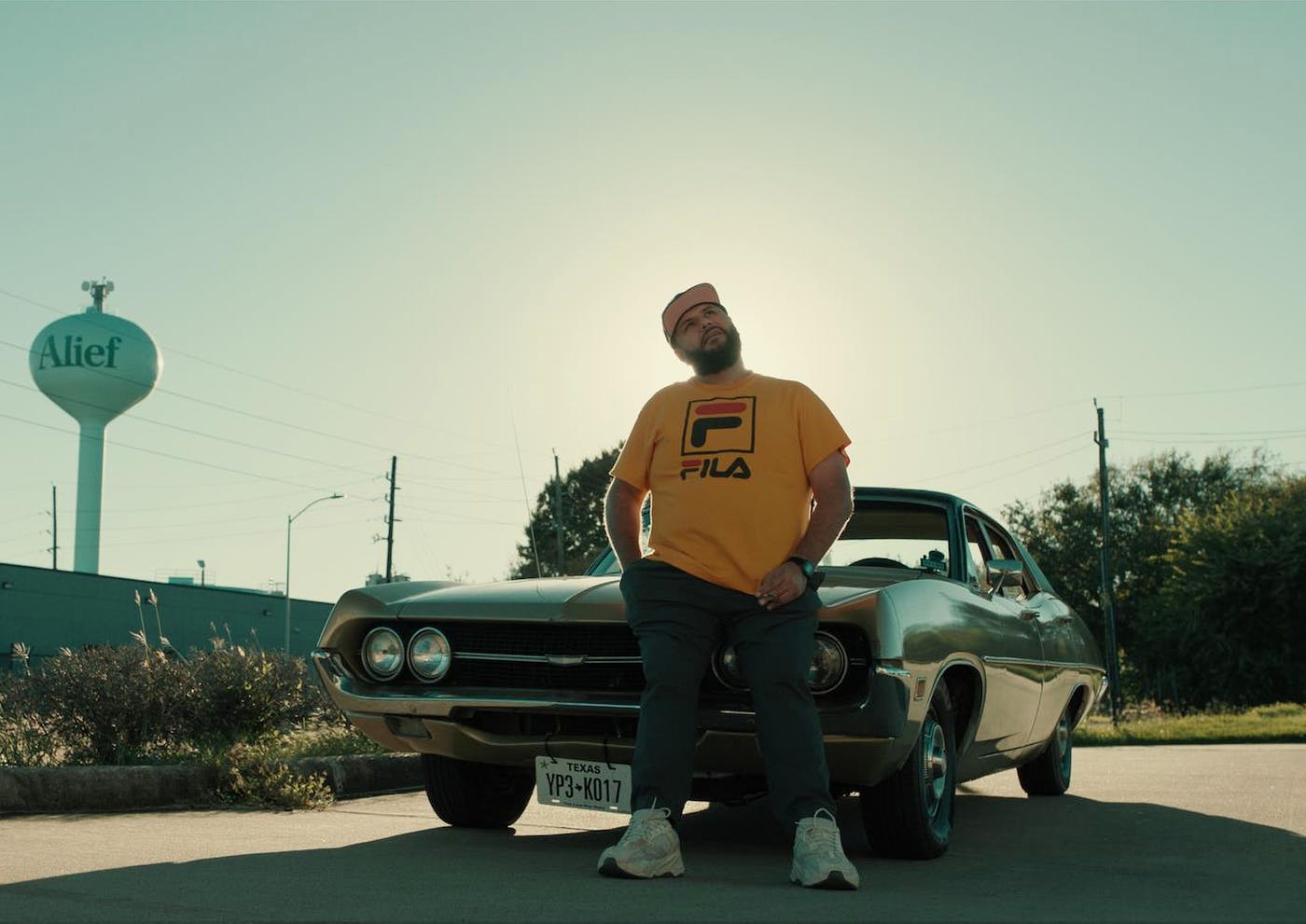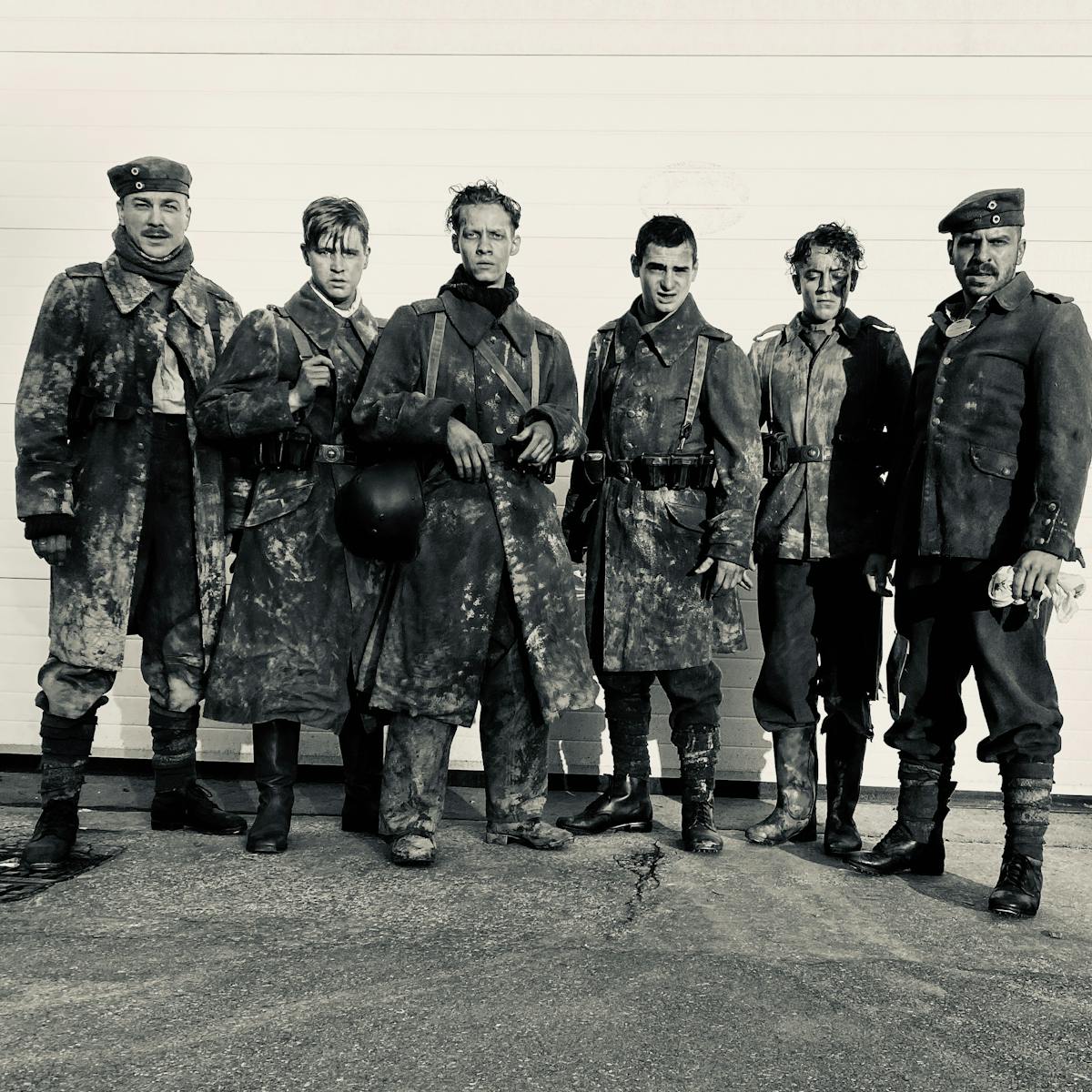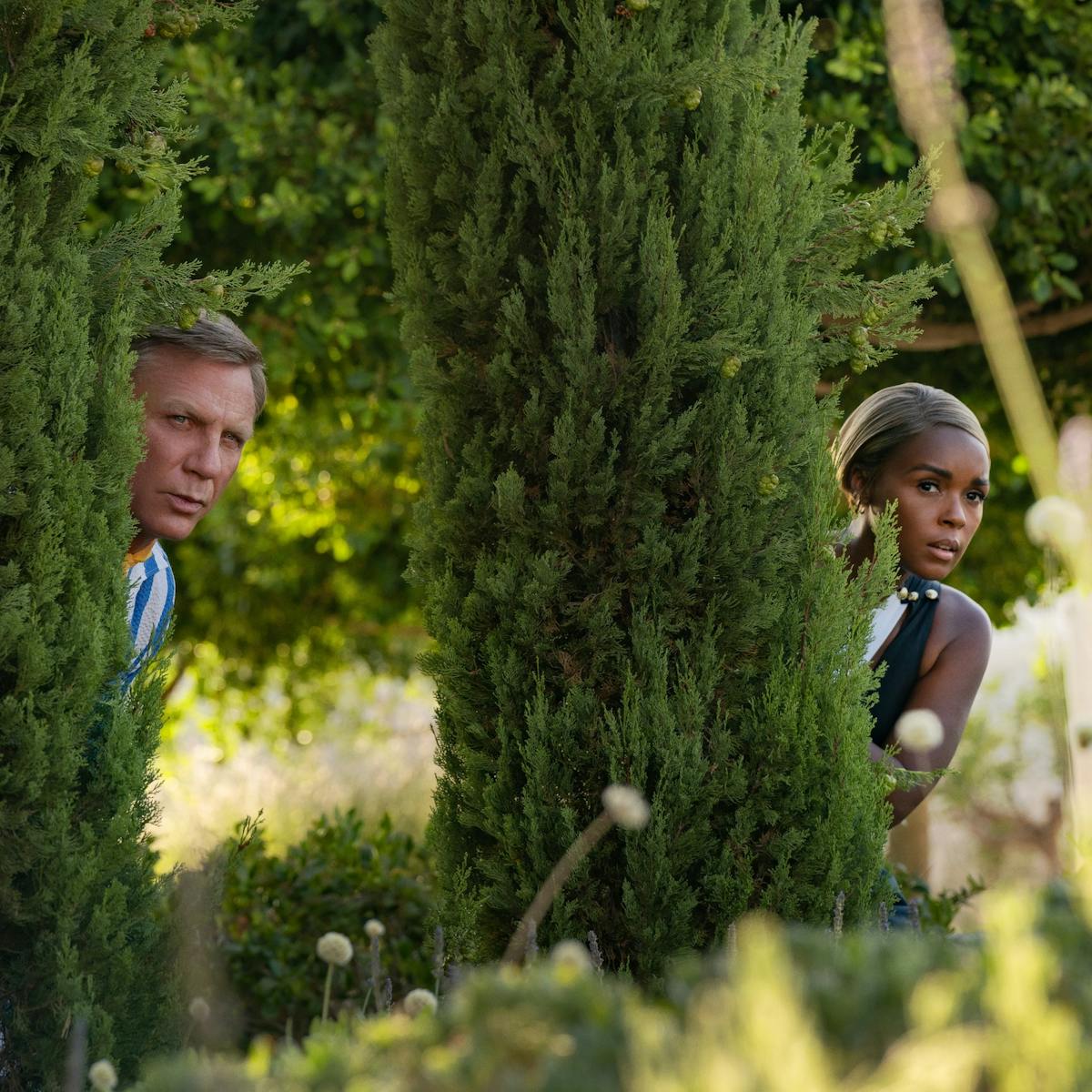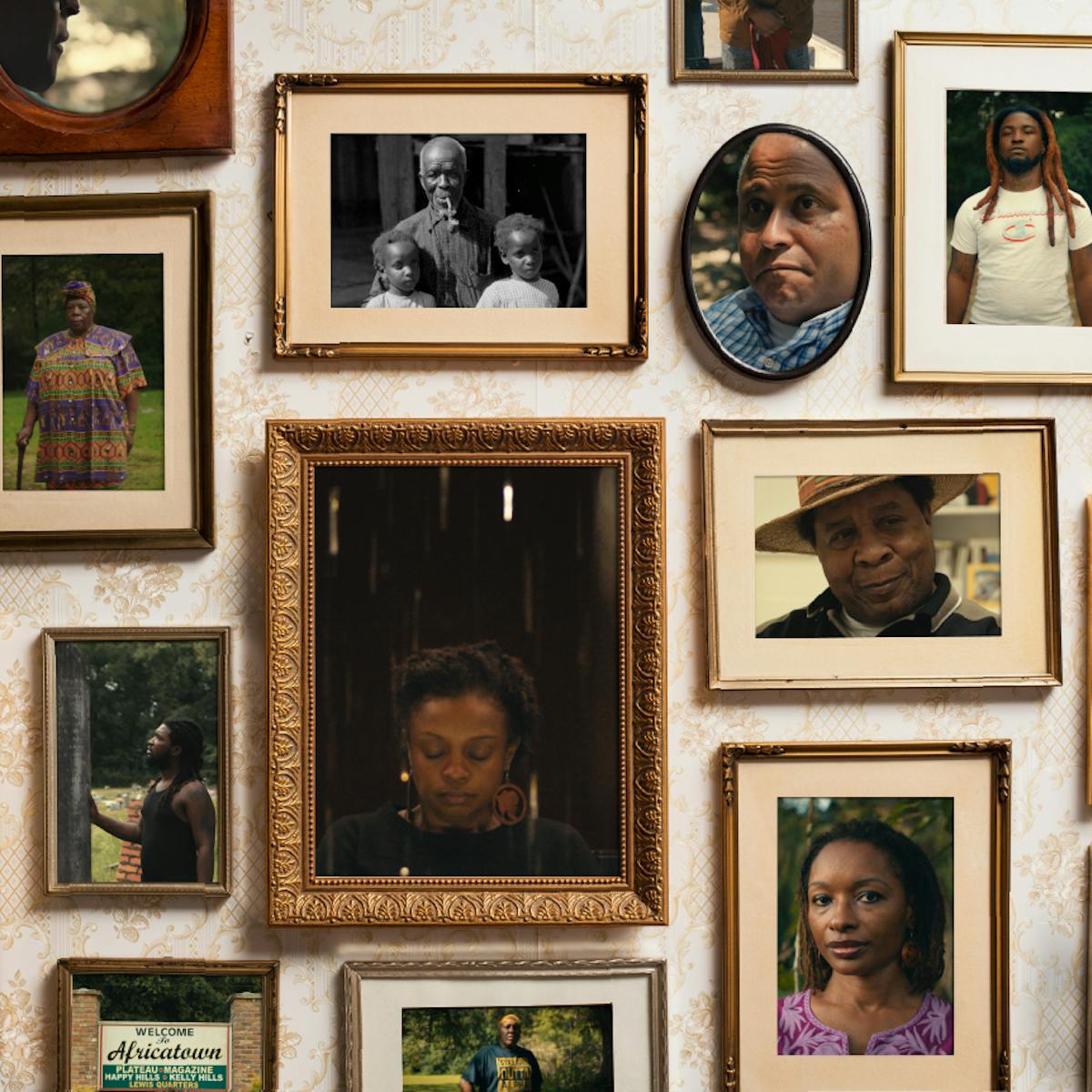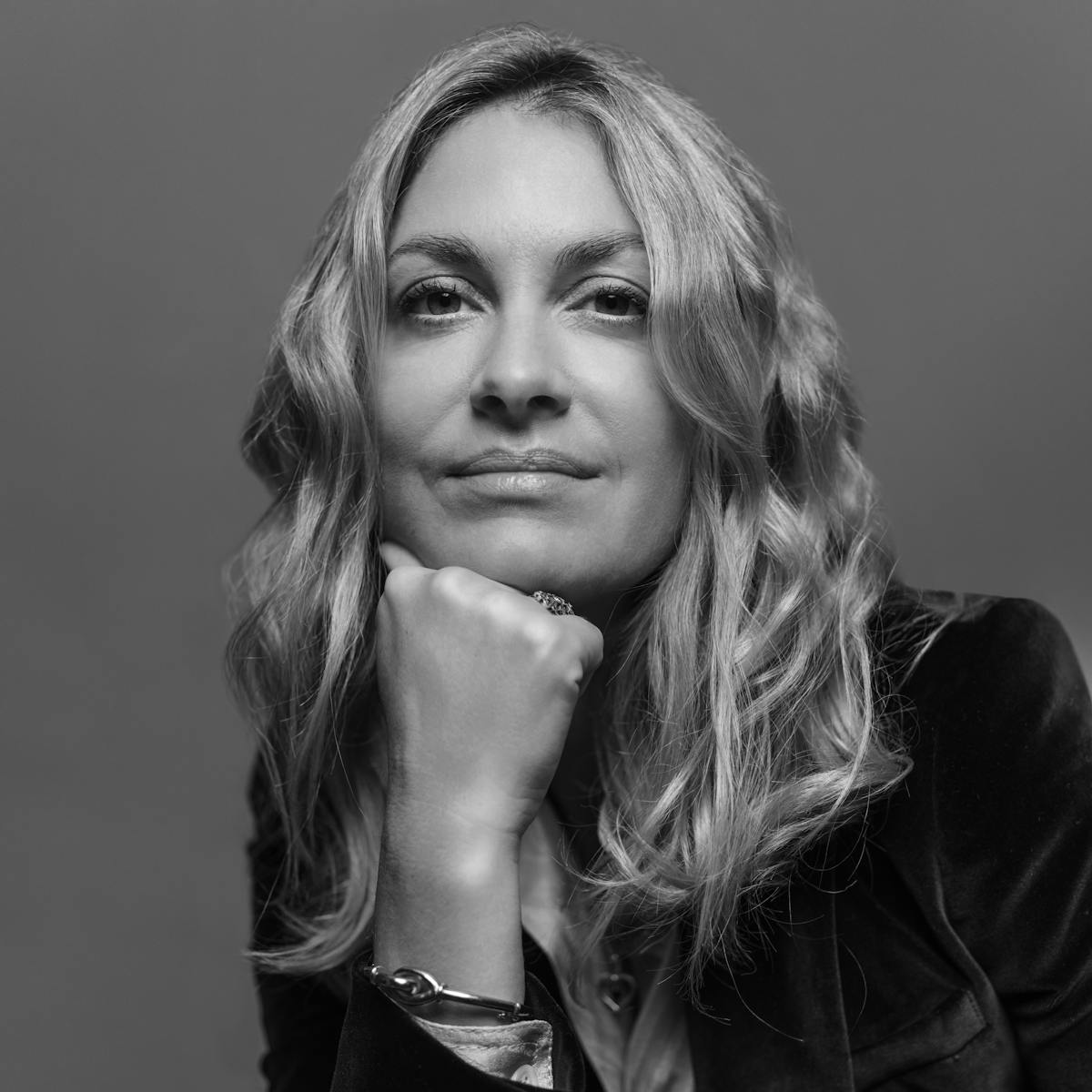Star and creator of the semi-autobiographical series Mo, Mo Amer tells the story of an Arab immigrant in Texas with hope and humor.
Mo, a new comedy series, portrays a very specific experience: that of a Palestinian immigrant living in Houston, by way of Kuwait, who lives with his mother (Farah Bsieso) and younger brother (Omar Elba), speaks decent Spanish (along with fluent Arabic and English), and puts on the Southern charm while selling Yeezy knockoffs out of the trunk of his car. In between pushing his family’s asylum case forward and coping with his father’s death by sipping codeine (a.k.a. lean), Mo kicks it around Houston with his best friend Nick (Tobe Nwigwe) and his girlfriend Maria (Teresa Ruiz). In carrying itself with the utmost authenticity, however, Mo has managed to make the Palestinian refugee experience resonate with viewers from all walks of life.
Despite the heft of its topics, Mo is first and foremost a laugh-out-loud comedy, in large part because of its creator’s inimitable warmth and vulnerability. The series is the brainchild of stand-up comedian and actor Mo Amer who plays the title character and based the series on his own life experiences as an immigrant and refugee, as he has done with much of his work to date. Amer, who first came on the scene with his comedy specials (Mo Amer: The Vagabond, Mo Amer: Mohammed in Texas), has since appeared in the Emmy-nominated series Ramy and made his feature film debut alongside Dwayne Johnson and Pierce Brosnan in Black Adam this year.
With just one eight-episode season under its belt, Amer’s singular series has already earned critical praise — including a Gotham Award for Best Breakthrough Series – Short Format — and a cadre of devoted fans, among them TV host and comedian Jon Stewart. After a recent screening of the first few episodes at The Roxy Theater, Stewart led a Q&A with Amer where audience members shared their heartfelt appreciation for Mo: a writer praised the series’ women characters; multiple Arab viewers commented on the accuracy of Mo’s linguistic approach; a fellow Houstonian celebrated Amer’s depiction of the misunderstood city. “It’s not just the way the show is written,” another emphasized, as many in the crowd visibly teared up. “It’s you, man. I see so many people that relate to you that look nothing like you or have nothing to do with your background.”
Amer has been bowled over by viewers’ responses to his telling of his story: “I’m at a loss for words because I got a video of 5,000 people chanting my name in a concert [in Palestine]. I come out from my shows [with a predominantly Latinx audience] and I’m like, Is George Lopez headlining, or is it me?” Amer alternates between tearing up and laughing: “The mix of cultures that are coming out to my shows is just heartwarming and beautiful — it’s just been spectacular.”
In conversation with Stewart, Amer considers the many people and places he calls home and the importance of condiments.
An edited version of Amer and Stewart’s conversation follows.
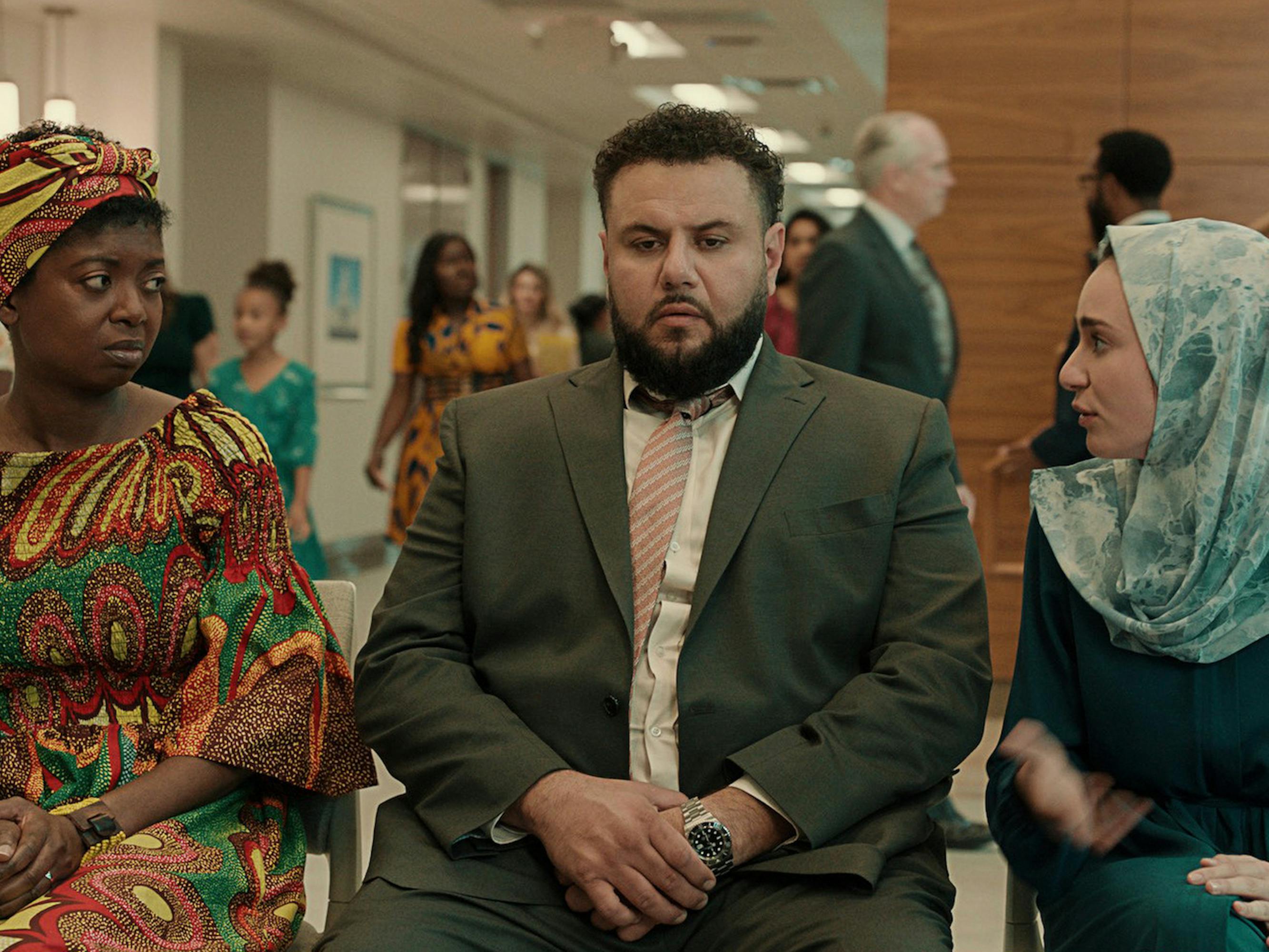
Aisha (Nene Nwoko), Mo (Mo Amer), and Maysoon (Zein Khleif)
Jon Stewart: Mo, just start at the beginning: You were a refugee from the Palestinian diaspora in Kuwait and then you came to Houston. And you created a show where your name is Mo, and you were a Palestinian refugee in Kuwait who moved to Houston. Talk about your range as a performer.
Mo Amer: Tough stretch. A lot of stuff that I did in the show I realized that I didn’t deal with properly in my own personal life. You think, Oh, it’s your personal life, so it’s easy, but it’s actually really difficult; to project that onscreen is a very, very scary thing to do. And to pull it off where it’s grounded and real was also [hard]. And then [I was thinking about] how my family was going to receive it: Was it too personal?
I keep using the word scary, but it just was. I heard this great quote: Stop letting fear be your headwind; let it be your tailwind. Every time I started feeling those emotions, I was like, Okay, I’m heading in the right direction. I got to trust this process. For it to resonate totally, it has to be grounded and it has to be as authentic as possible to my own experience. When you’re making something that’s so new, that’s never been done before, you just have to trust your instincts in that situation. At some point I had to be like, Oh man, this is a comedy. We have to balance this thing out. Whenever you squeeze the characters as much as possible emotionally, the comedy seems to come out naturally.
JS: There’s kind of a delightful confection at first to get [the viewer] to relax, and then all of a sudden the depth of [the show] builds. Was that a purposeful strategy, to bring it in with a playfulness, or is that just how the story unfolded naturally?
MA: What we discovered in the writers room is that that’s who I am. I’m always digging into stuff by being really playful, especially in the most difficult circumstances. When you flee a Gulf War and you end up in Houston, Texas, you have all these things thrown at you, emotionally. That’s the way I dealt with things pretty regularly. In Episode 3, when [my character] finds out about his dad’s [torture], he’s like, Let’s go play games at Funplex; he’s trying to have his childhood back, essentially.
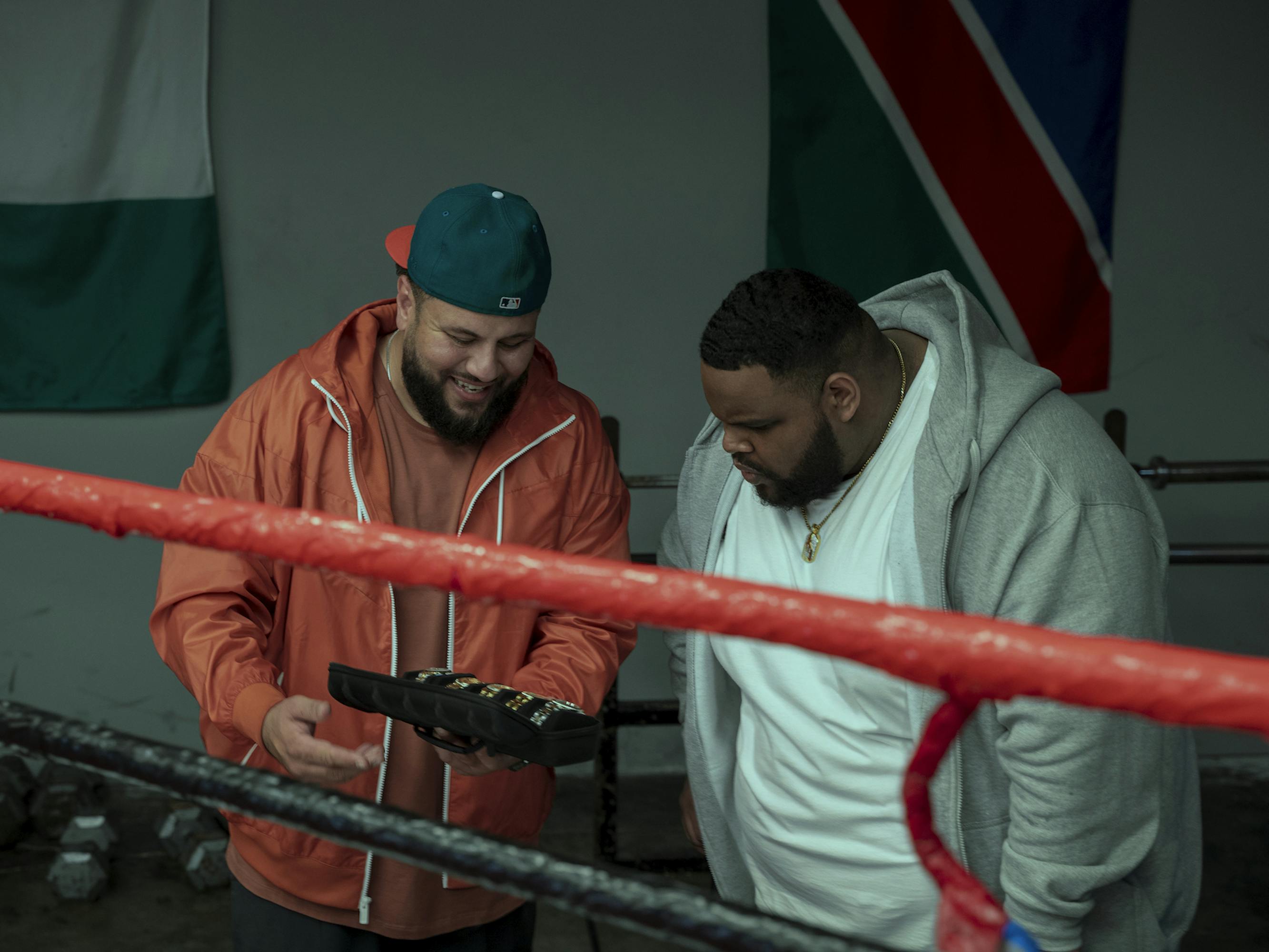
Mo (Mo Amer) and Dante (Rafael Castillo)
JS: That walkman scene really stayed with me the whole time because the interplay with the music adds so many elements and plays into that idea of walking around with your own soundtrack. Was that a way that you comforted yourself [growing up]?
MA: Music was a big part of that. But also my dad was a telecommunications engineer before he passed away, and he would always hand me little tech gifts like that. So we thought it would be a really cool baseline.
The music is definitely a big part of the show; it’s so important. When we were trying to get it together, I was like, Well, who am I? I’m a little bit hip-hop, a little bit country, I love bluegrass, I love the blues, and I love traditional folk music. The “Yamo” track in Episode 2 [that plays] when my mom is making olive oil is from a Syrian actor and singer, Duraid Lahham. Yamo is slang for mom, and there’s a scene where Lahham’s character is in prison and everybody’s singing to their moms on Mother’s Day — it became this instant classic throughout the Middle East. I’ve seen my dad cry on two separate occasions: when my grandmother passed away and when he watched that scene.
I ended up getting licensing for “Yamo” from Lahham; Suhell Nafar, our music supervisor, tracked him down. So, 35 years after seeing this clip as a little kid, I get a letter from [Duraid] in war-torn Syria: Mohammed Amer has the rights to use this song for his Netflix series. It was deeply moving; my mom cried.
JS: You occasionally meet glue people — people who hold groups from different backgrounds together and somehow understand how to bridge those gaps — and I think you’re one of those rare individuals. I wonder if pulling from all those different places is top of mind or just happens to be part of your character.
When you’re making something that’s so new, that’s never been done before, you just have to trust your instincts in that situation.
Mo Amer
MA: It’s a little bit of both. It’s definitely a part of my character, but also I know that being in touch with a song like “Yamo” creates such a connection with people overseas. Like having Paul Wall “Sittin’ Sidewayz” play at the opening of the pilot [makes] people in Houston be like, Oh this guy’s definitely from Houston.
The authenticity is super important. For Episode 3, I had a camera crew film around Burin, Palestine, where my mother was born and where my grandparents’ house is, and I made sure to get [a shot of my grandparents’ actual house]. The flashback in Episode 7 where you see the address of the house in Kuwait — that’s actually the house that we fled from in Kuwait. Even though it’s like two or four seconds, it matters. Whenever we had to be quiet in Episode 1 when my brother walks in and he’s doing the eye contact, I wanted to make sure we sat in it. You have to sit there and not be afraid of silence. What the music is and where it cuts off, what’s playing, what’s happening, the emotion — all of it matters to me. Every second is important.
JS: [These characters] are based on your family, but obviously not dead-on. I never felt like any of the relationships in the show were caricatured. They always felt grounded in their humanity and not in their casting call descriptions. And that’s a really difficult thing to pull off, to create those conflicts without falling into that.
MA: My mom and my brother actually came to set one day and we all took a picture together. I was like, This is fucking weird. It was a little too much for me, everybody just sitting there. Farah and Omar handled [these roles] with such care.
JS: You know that I’m a condiment man, and I will put Russian dressing on a lot of things. The care in the making of the olive oil, and the olives in general, the ritual of it is so important. The only things I’ve seen like that were by Scorsese, somebody who was bringing the rituals of his culture, which at that time was considered other, to the screen for the first time. I wonder if you felt that pressure as well, to represent those things that you love about who you are.
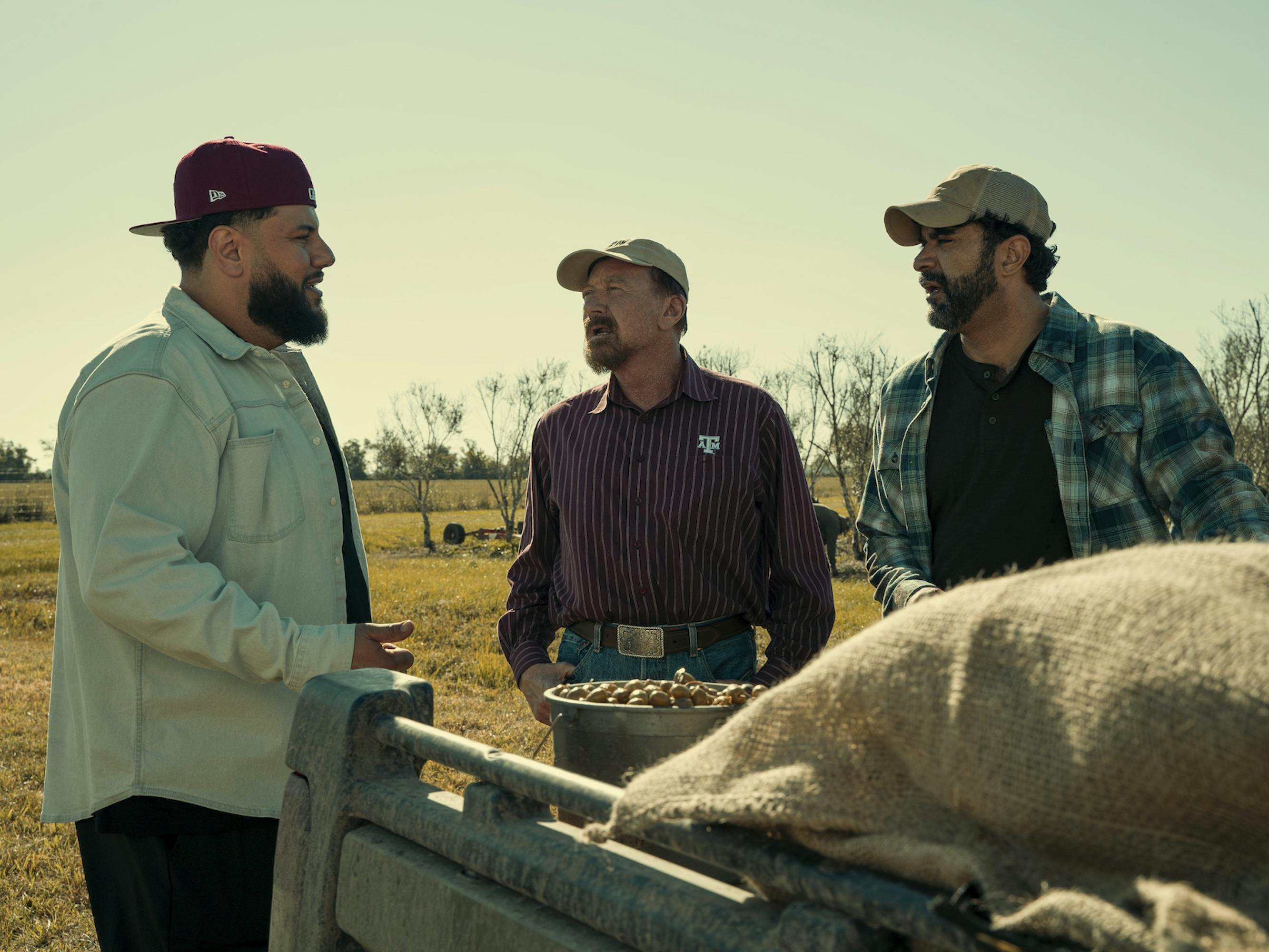
Mo (Mo Amer), Buddy (Walt Roberts), and Manny (Carlos Lerman)
MA: Yeah, I felt a lot of pressure. The weight of the subject matter alone is so heavy. I have to filter all that out and just realize that I know what I need to talk about and what’s important for the show. And olive oil in particular, just like how I talked about hummus in my last special and in the series, it’s just who we are. It’s not only the olive oil itself — how much we love it, and seeing my mom so motivated to make it for the love of her family — it’s a touchstone to home. But it’s also the olive branch threaded throughout the whole series. It’s a common experience of struggle that is delivered in the vehicle of a refugee, asylee family in America, but one that everyone can relate to. This is how they keep that connection to home, while they’re trying to belong.
JS: The lean. What was your thought process behind that numbing?
MA: I don’t have a lean addiction, first of all. We’ve lost a lot of Houston legends to lean and it’s happened across the country. One layer is a commentary about self-medicating. It’s pain management. [My character] blames it on the gunshot, but truly it’s about his heart and the spiritual illnesses he’s going through, that he’s not able to get out of his chest, and how easily you can lose yourself. We all find a way, whatever it is, to avoid the actual problem.
By the end you see he starts losing his family, he’s erratic in his behavior and his emotions towards his girlfriend, his mother, his brother. There’s this spiraling out of control and it’s because he doesn’t have any idea how to channel those feelings. It was something really great to be able to perform in the series while making sure to let everybody know that this is not a constructive way to [deal with emotions].
JS: It’s very powerful. Especially to watch you acting in some of those scenes, like the confession scene — that was just beautiful.
It’s a common experience of struggle that is delivered in the vehicle of a refugee, asylee family in America, but one that everyone can relate to.
Mo Amer
MA: [The audience] hasn’t seen it. Mo finds out about his father’s torture, which he didn’t know about. That’s how I found out about my dad as well: at the lawyer’s office, exactly like that. I looked through [the file] and I was like, What is that? So, we were thinking, How do you get this out? Mo’s girlfriend, who’s constantly trying to help him find a constructive way to get some help, takes him to confession as a way to start and he melts down. I’m melting down a little bit right now. It’s so difficult talking about it. And I had Bun B playing the priest, which was amazing [audience cheers].
JS: Really? This is a Bun B room? I thought it was more of a Mandy Patinkin room. I’m learning a lot tonight.
MA: I was so grateful to have him because he is a personal friend of mine, someone I could really trust in that kind of deeply emotional scene. In that moment I realized, I never really dealt with this in my own life. This is as real as it gets on camera. After, I just broke down. I was like, Oh God, I’m going to be a [crying] Jordan meme. That’s the first thing you think, Oh shit, what did I just do?
I had been told, Be so honest it’s hard to make eye contact with you. And I never understood that. And then I film that scene, and I see everybody’s just so emotional and they find it very difficult to look at me, and I was just so self-conscious, like, Oh God, what happened? Then, I finally understood it. It was a really special moment. I’m glad I did it.
JS: In those moments, is there a catharsis for you or are you worried about, like, When I first do this scene, am I doing it right? What is my mother going to think of this? Have you gotten to a point now where you’ve cleared those hurdles, and do you feel like you are able to be more of an unencumbered visionary moving forward?
MA: The whole experience was very cathartic. When I finished, I felt calm, happy. I was constantly in touch with my mother. She’s the heart of the show. The things that she’s done and continues to do to this day are just mind-blowing. It got us closer actually. So I feel really comfortable sharing these stories and digging deep as long as it’s directly dealing with me and nothing deeply personal with my mother or anybody else in my life — I have to avoid that. But I feel very comfortable with just being transparent and real. Because: How long do you hold on to shit? How long are you going to keep holding on to stuff and burying it? It does nobody any good.
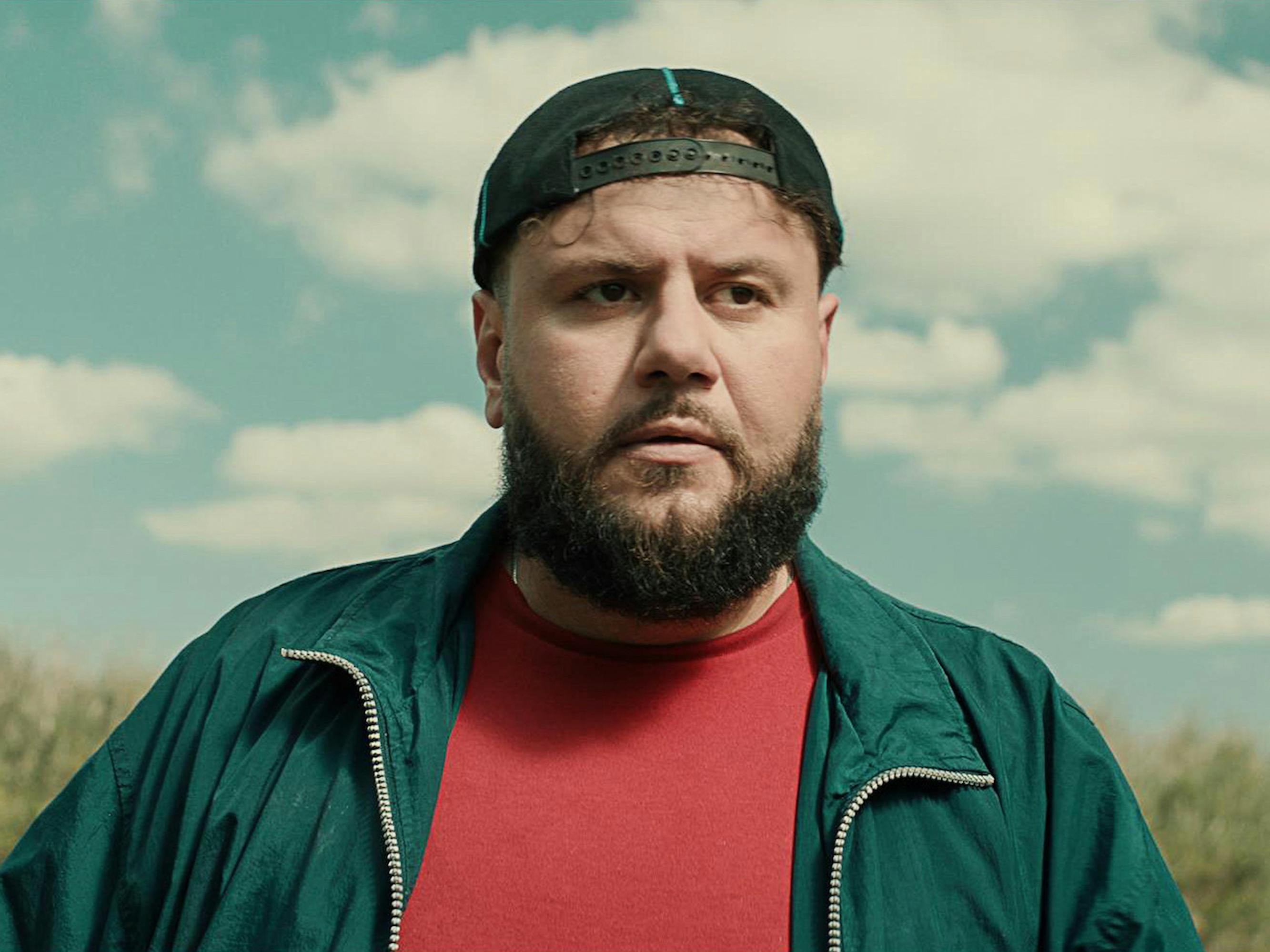
Mo (Mo Amer)
JS: You can do it for 60 years.
MA: I really believe that putting out Mo was the last thing I needed to get out. This experience was so rich and deep, but I want to go off and do other things that have nothing to do with this anymore. I really am excited to build off of it.
JS: Well, you can’t because I need Season 2 pretty soon. If you guys haven’t seen it, it ends on a cliffhanger. If you only make eight episodes, I’ve got to come up with other shit to do. So, you need to make me more episodes.
MA: I’m waiting to hear about Season 2.
JS: For real? I’ve got to say that’s blowing my mind a little bit. Any plans to perform in Palestine?
MA: Yeah, I have plans to next year; I want to do some shows. And [depicting] a Palestinian’s relationship with a Jewish person was very important to me. Why does that not exist on television? Why is it always so divisive? I wanted to show that these relationships exist between the two uncles. No one talks about how Christians exist in Palestine, which is absurd. And you have someone from a Jewish background with Zionist beliefs. They go at it but still care for each other. So having these kinds of characters is really important to me because that’s what’s going to unite us rather than divide us.
JS: Any plans for a Jewish opener?
MA: Do you know anybody?
